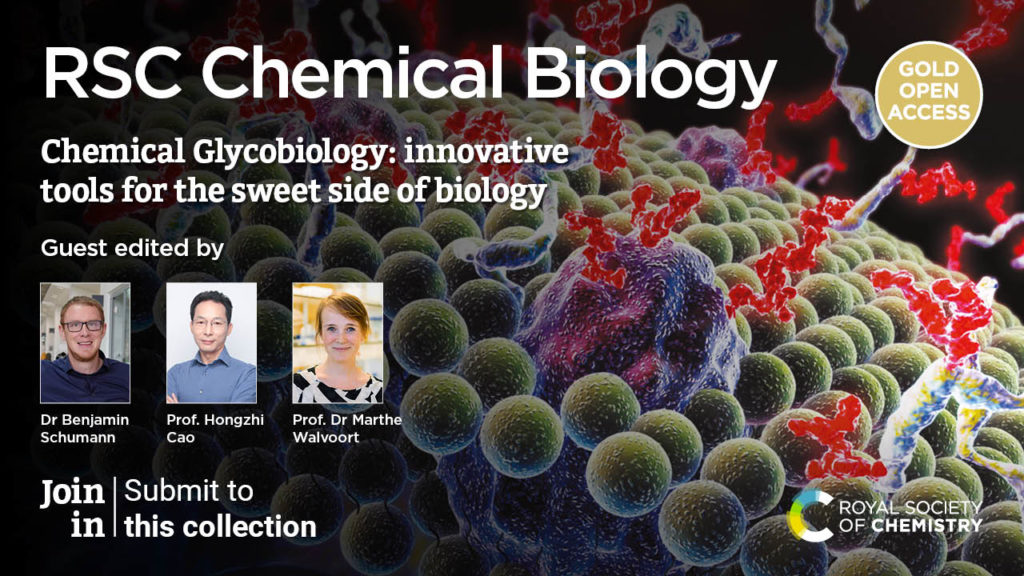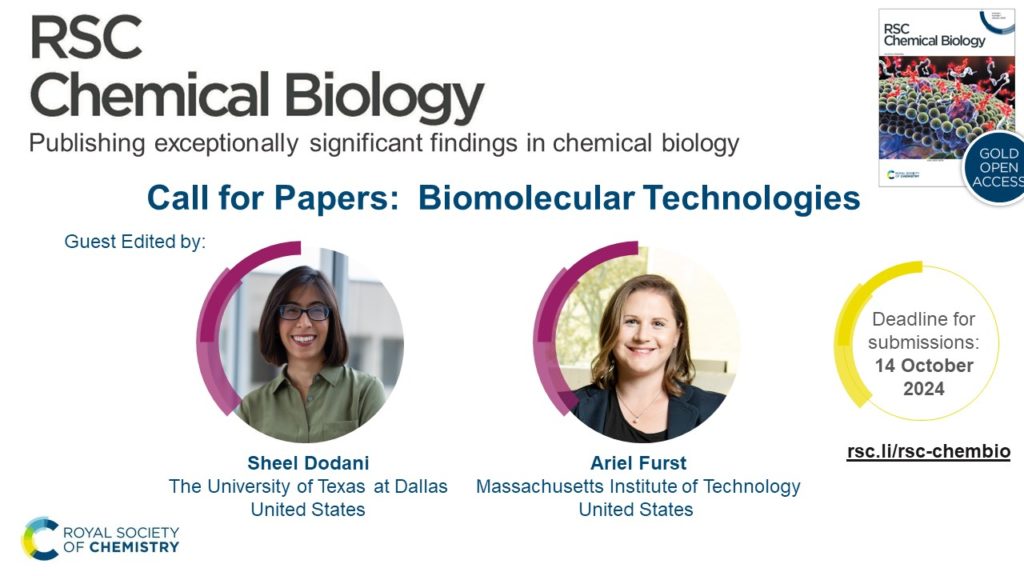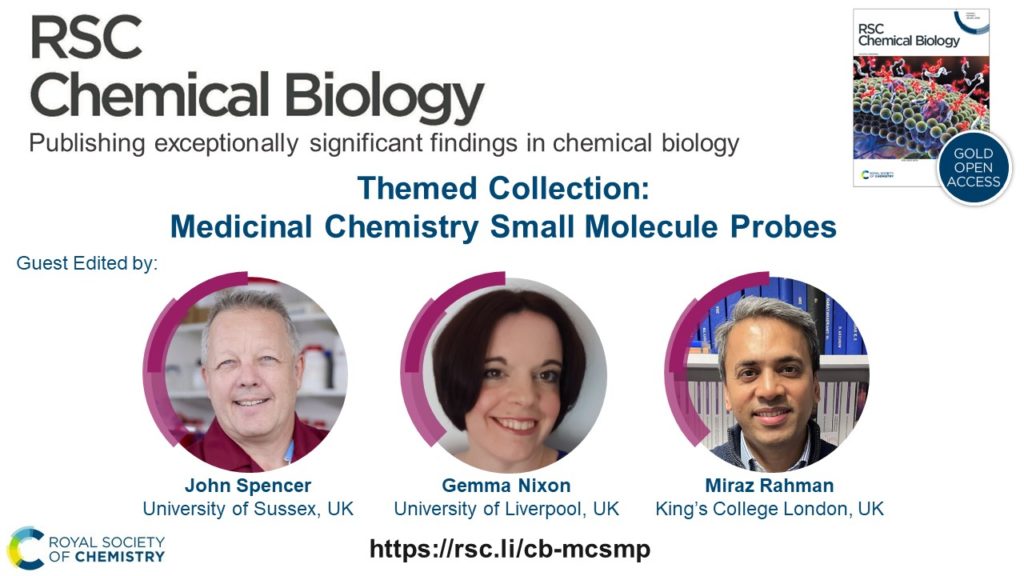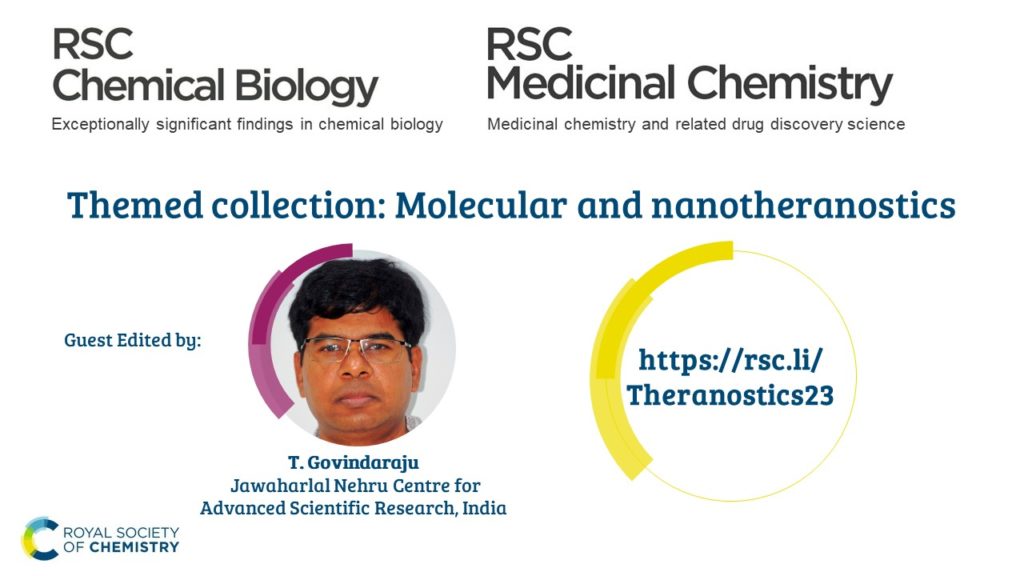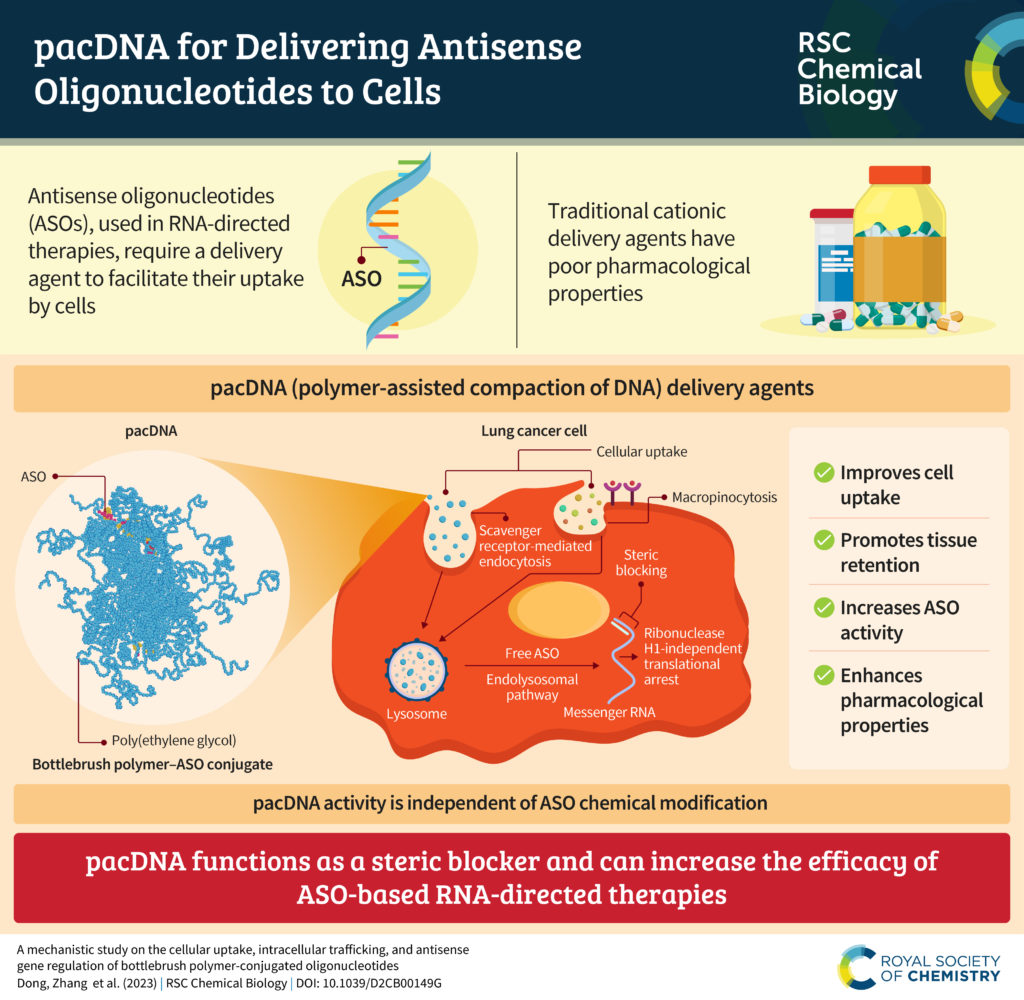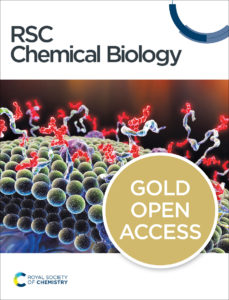RSC Chemical Biology and RSC Pharmaceutics are extending the submission deadline for the upcoming themed collection on ‘Endocytosis and Cellular Delivery‘.
The new deadline for submissions is 30 April 2025
Articles can be submitted to either of the two journals depending on the topic of the manuscript and how well it fits in to the journal’s scope. Authors who contribute their work to RSC Pharmaceutics will benefit from a full waiver of the article processing charges, so their work can be published and read at no cost.
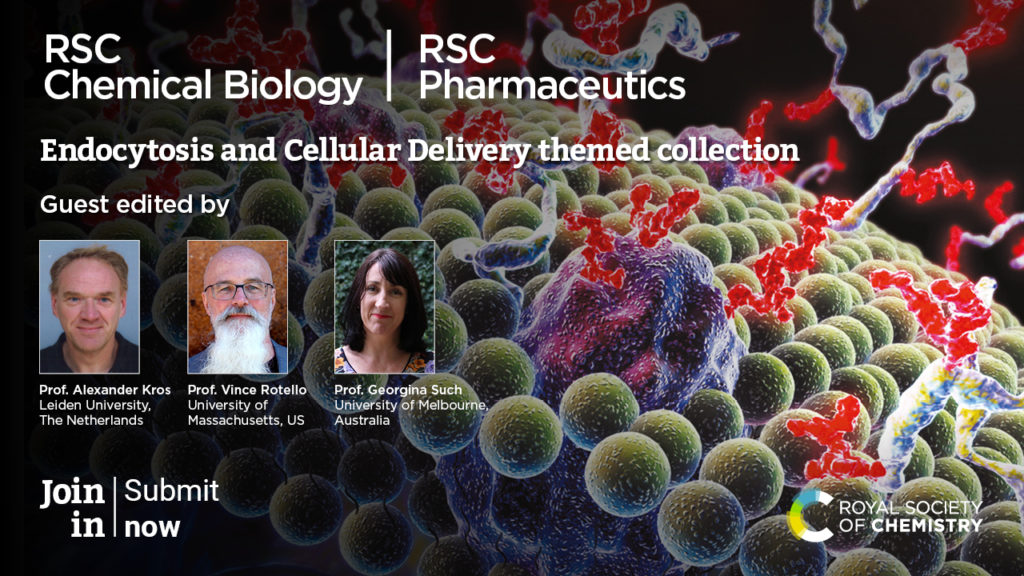
Guest Edited by Prof. Alexander Kros (Leiden University), Prof. Vince Rotello (University of Massachusetts) and Prof. Georgina Such (University of Melbourne), this collection will explore how both biological and synthetic tools can be leveraged to understand the impact of material structure on the migration of specific cellular barriers, aiming to enhance the delivery efficiency of macromolecules and delivery systems such as liposomes, lipid nanoparticles, and polymeric carriers. Key topics will include the following:
- Novel tools to understand and quantify cellular trafficking of nanoparticles and their cargo, including processes such as endosomal escape, membrane fusion, cytosolic delivery and nuclear localisation.
- Fundamental understanding of how nanoparticle structure impacts cellular interactions.
- Design of new delivery systems that incorporate intelligent strategies to migrate biological barriers for more effective therapeutic delivery.
- Novel tools, methodologies to understand and quantify cell uptake and the fate of the multiple components in drug delivery systems.
- Tools/basic understanding on the role of the protein corona on the fate of the particles beyond the very general basic level.
Articles can be submitted via the respective journal’s website, rsc.li/rsc-chembio or rsc.li/RSCPharma. Information on the journals’ scopes can be found at the bottom of this message. We would be grateful if, upon submission you would mention that your manuscript is intended for this themed collection. Please note that all submissions are subject to the journal’s normal peer review processes, an initial assessment to confirm the manuscript’s suitability for full peer review.
Promotion of the collection is scheduled for mid-2025, with articles published online as soon as they’re accepted.
About RSC Chemical Biology
Led by Hiroaki Suga (University of Tokyo), RSC Chemical Biology is dedicated to publishing and disseminating the most exceptionally significant, breakthrough findings of interest to the chemical biology community. All submissions are handled by our experienced and internationally recognised Associate Editors. For more information on the journal, please visit the journal homepage.
About RSC Pharmaceutics
RSC Pharmaceutics acknowledges how chemistry and related disciplines can make a big difference to addressing health challenges. The journal provides a platform to publish crucial research on pharmaceutics, covering emerging technologies and techniques in pharmaceutics, including drug delivery, precision medicine, and enhanced drug targeting. Publications in RSC Pharmaceutics have the potential to drive real change in worldwide health. For more information on the journal, please visit the journal homepage.
As gold open access journals, there are no barriers to accessing content and your research article will reach an international audience.
Article processing charges apply at RSC Chemical Biology – please see the journal web site for details on fees, discounts, and waivers. RSC Pharmaceutics is currently waiving article processing charges for all submissions.


